
Jean Epstein
Nacimiento : 1897-03-25, Warsaw, Poland
Muerte : 1953-04-02
Historia
Jean Epstein was a French filmmaker, film theorist, literary critic, and novelist. Although he is remembered today primarily for his adaptation of Edgar Allan Poe's "The Fall of the House of Usher", Epstein directed three dozen films and was an influential critic of literature and film from the early 1920s through the late 1940s. He is often associated with French Impressionist Cinema and the concept of photogénie.
Epstein was born in Warsaw, Kingdom of Poland (then a part of Russian Empire) to a French-Jewish father and Polish mother. After his father died in 1908, the family relocated to Switzerland, where Epstein remained until beginning medical school at the University of Lyon in France. While in Lyon, Epstein served as a secretary and translator for Auguste Lumière, considered one of the founders of cinema.
Epstein started directing his own films in 1922 with Pasteur, followed by L'Auberge rouge and Coeur fidèle (both 1923). Film director Luis Buñuel worked as an assistant director to Epstein on Mauprat (1926) and La Chute de la maison Usher (1928). Epstein's criticism appeared in the early modernist journal L'Esprit Nouveau.
During the making of Coeur fidèle Epstein chose to film a simple story of love and violence "to win the confidence of those, still so numerous, who believe that only the lowest melodrama can interest the public", and also in the hope of creating "a melodrama so stripped of all the conventions ordinarily attached to the genre, so sober, so simple, that it might approach the nobility and excellence of tragedy". He wrote the scenario in a single night.
Epstein had been much impressed by Abel Gance's recently completed La Roue, and in Coeur fidèle he sought to apply its techniques of rapid and rhythmic editing as well as the innovative use of close-ups and superimpositions of images. These techniques are most apparent during the first half of the film: the opening sequence establishing Marie's situation in the harbour bar through a series of close-ups of her face, her hands, the table and glasses that she is cleaning; the use of images of the sea and the port, either intercut or superimposed, to convey the yearnings of Jean and Marie; and the film's most celebrated sequence at the fairground in which a highly complex series of rhythmically assembled images charts the tension of the relationship between Marie and Petit Paul. The later scenes of the film are relatively conventional in the techniques employed and depend more upon situation and action than upon photography and processing of the images. In the 1920s, Epstein's works would display influences from German Expressionism.
Epstein also made several documentaries about Brittany. Chanson d'Armor is known as the first Breton-speaking film in history. His two novels also take place in Breton isles: L'Or des mers in Ouessant and Les Recteurs et la sirène in Sein.
In August 2005, his films The Three-Sided Mirror (1927) and Le Tempestaire (1947) were restored and re-released on the DVD collection Avant-Garde: Experimental Cinema of the 1920s and 1930s.
Epstein died in 1953 from a cerebral hemorrhage.

Original Story
In spite of bad omens and the upcoming storm, the fisherman sets out to the sea and doesn’t return. The wife of the fisherman becomes haunted with deceptions of reality, while searching for the storm whisperer who could calm down the sea and return the fisherman home.

Director
A poetic drama, spoken in the Breton language and set in a Breton fishing community, telling of the impossible love between a waifish fisherman and a highborn lady-of-the-manor.

This portrait of the French film theorist and avant-garde director Jean Epstein (1897-1953) concentrates on the period when he filmed in Brittany, the spot where he became inspired by the sea. Using rare archive footage, Jean Epstein, Young Oceans of Cinema also looks at Epstein’s views on the specificity of the film medium.

Director
Documentary film shot in Brittany about lighthouses and lighthouse keepers on the island of Ouessant and coast of Finistere.
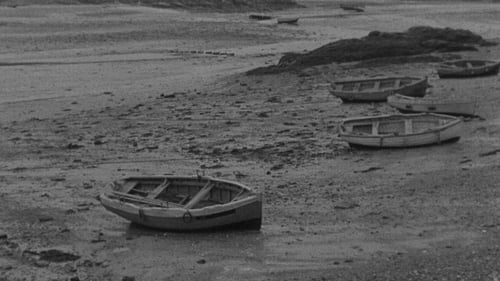
Editor
En "Le tempestaire" la protagonista es la propia naturaleza. La historia sigue a mujer de una aldea costera tiene pavor ante un mar cada vez más encabritado. Es un miedo que proviene de que su marido está navegando en el mar, aunque ella está segura en su casa, en su pueblo, y la tempestad no puede afectarle físicamente mientras lleve un poco de cuidado.

Writer
En "Le tempestaire" la protagonista es la propia naturaleza. La historia sigue a mujer de una aldea costera tiene pavor ante un mar cada vez más encabritado. Es un miedo que proviene de que su marido está navegando en el mar, aunque ella está segura en su casa, en su pueblo, y la tempestad no puede afectarle físicamente mientras lleve un poco de cuidado.

Director
En "Le tempestaire" la protagonista es la propia naturaleza. La historia sigue a mujer de una aldea costera tiene pavor ante un mar cada vez más encabritado. Es un miedo que proviene de que su marido está navegando en el mar, aunque ella está segura en su casa, en su pueblo, y la tempestad no puede afectarle físicamente mientras lleve un poco de cuidado.

Dialogue
Parisian adventures of a fearless couple of friends and their return to their home in Marseille after a happy double marriage.

Director
Parisian adventures of a fearless couple of friends and their return to their home in Marseille after a happy double marriage.

Scenario Writer
A sailor falls in love with an innkeeper on a lost island.

Director
A sailor falls in love with an innkeeper on a lost island.

Director
Produced for the National Federation of Building Workers Ciné-Liberté, a Popular Front organization intended to counteract capitalist interests in the film industry, Epstein’s union documentary examines building policy from the perspective of ordinary workers and notable architects. In addition to touring the Cathedral of Chartres and the Paris Exposition of 1937, the film features rare interviews with Le Corbusier (at his drawing board, no less) and Auguste Perret.

Director

Producer
Documental acerca de la región y las costumbres bretonas, realizado por Jean Epstein como encargo para la Exposición Internacional de París de 1937.

Director
Documental acerca de la región y las costumbres bretonas, realizado por Jean Epstein como encargo para la Exposición Internacional de París de 1937.

Writer
The French and the English spy on each other, in this adventure set in post World War I colonial Syria.

Director
The French and the English spy on each other, in this adventure set in post World War I colonial Syria.

Director
Because he found a box washed up by the sea holding unknown contents, a poor and despised fisherman and his daughter are suddenly courted by everyone in the village.

Screenplay
The almost financially ruined French gentleman Gaston Dewalter spends several days in Biarritz before going off in the Hispano-Suiza, a luxe car which was a present from his friends. George becomes the lover of Lady Stéphane Oswill pretending he is wealthy. Then Stéphane spends the remaining funds with which the now desperate George hoped to rebuild his fortune in Senegal.

Director
The almost financially ruined French gentleman Gaston Dewalter spends several days in Biarritz before going off in the Hispano-Suiza, a luxe car which was a present from his friends. George becomes the lover of Lady Stéphane Oswill pretending he is wealthy. Then Stéphane spends the remaining funds with which the now desperate George hoped to rebuild his fortune in Senegal.

Director
A woman rocks a cradle; a man comes to land from the sea, but leaves to view it from a distance.

Screenplay
Jean Epstein’s short documentary filmed on the Breton island of Sein, which film preservationist and cinephile Henri Langlois called “one of the most beautiful documentaries in the history of French film, a true poem about Brittany and the sea."

Director
Jean Epstein’s short documentary filmed on the Breton island of Sein, which film preservationist and cinephile Henri Langlois called “one of the most beautiful documentaries in the history of French film, a true poem about Brittany and the sea."
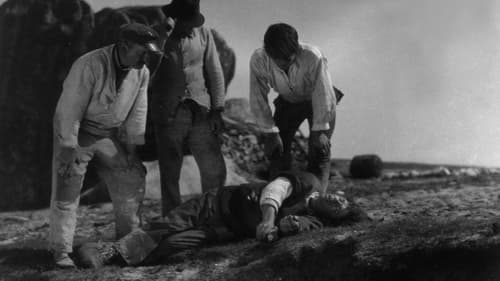
Writer
On the islet Bannec, off the coast of Brittany, four fishermen have set up camp for three months to harvest seaweed. If processed correctly, the ash of the seaweed can be sold for high prices. It is therefore burnt in several large piles on the island.

Director
On the islet Bannec, off the coast of Brittany, four fishermen have set up camp for three months to harvest seaweed. If processed correctly, the ash of the seaweed can be sold for high prices. It is therefore burnt in several large piles on the island.

Writer
Jean Bonnard, clean-cut industrialist and the only son of a widow, goes to visit his mother in the small village where she lives. However, early in the morning the police arrive to arrest him, accusing the man of having murdered the old banker who'd made advances towards his girlfriend. Jean's mother is eager to aid her son, whom she believes is innocent. Said Epstein of his film: "I shot small landscapes in Livilliers which seemed to me-- in their reality, I mean-- very large".

Director
Jean Bonnard, clean-cut industrialist and the only son of a widow, goes to visit his mother in the small village where she lives. However, early in the morning the police arrive to arrest him, accusing the man of having murdered the old banker who'd made advances towards his girlfriend. Jean's mother is eager to aid her son, whom she believes is innocent. Said Epstein of his film: "I shot small landscapes in Livilliers which seemed to me-- in their reality, I mean-- very large".
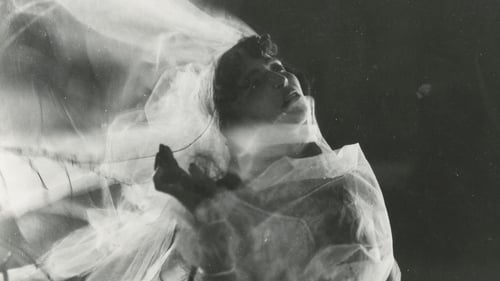
Writer
Un hombre llega a la mansión de su amigo Usher y la esposa de éste, Madelaine. Usher está pintando un retrato de su esposa, pero, al tiempo que transmite la esencia vital al lienzo, la mujer va desfalleciendo. Cuando perece, será enterrada en la cripta familiar, pero Usher no cree en verdad en la condición mortal de su amada... Adaptación libre de la historia de Poe.

Producer
Un hombre llega a la mansión de su amigo Usher y la esposa de éste, Madelaine. Usher está pintando un retrato de su esposa, pero, al tiempo que transmite la esencia vital al lienzo, la mujer va desfalleciendo. Cuando perece, será enterrada en la cripta familiar, pero Usher no cree en verdad en la condición mortal de su amada... Adaptación libre de la historia de Poe.

Director
Un hombre llega a la mansión de su amigo Usher y la esposa de éste, Madelaine. Usher está pintando un retrato de su esposa, pero, al tiempo que transmite la esencia vital al lienzo, la mujer va desfalleciendo. Cuando perece, será enterrada en la cripta familiar, pero Usher no cree en verdad en la condición mortal de su amada... Adaptación libre de la historia de Poe.

Director
A renowned doctor and his brother live and work together until the brother falls in love with Marie, a singer, and gives up medicine to be with her. After a time however, she misses her old life and goes back on the stage - an act which leads her lover to commit suicide. Later the doctor and Marie also meet, and she becomes his mistress. He finds out about his brother's suicide and goes through his artifacts looking for a clue as to what might have been the cause. He finds a photograph of Marie and realizes the truth, which decimates their relationship.

Adaptation
Un hombre joven caerá enamorado consecutivamente de una mujer adinerada inglesa (Pearl), una escultora rusa (Athalia) y una ingenua muchacha de clase obrera (Lucie).

Director
Un hombre joven caerá enamorado consecutivamente de una mujer adinerada inglesa (Pearl), una escultora rusa (Athalia) y una ingenua muchacha de clase obrera (Lucie).
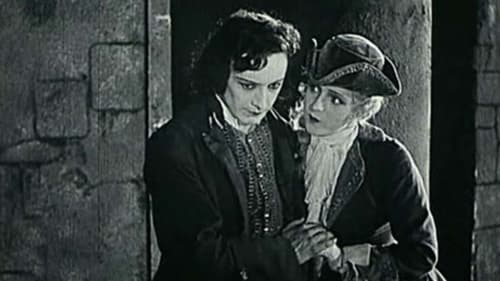
Writer
Al igual que la novela de Sand, la película tiene elementos góticos, caballerescos, melodramáticos y detectivescos. La acción transcurre antes de la Revolución Francesa y muestra el ingreso a la adultez de Bernard de Mauprat, un noble huérfano, criado por aristócratas renegados y criminales, que es salvado de la horca por su prima Edmée y por su padre, el Caballero Hubert de Mauprat. El regreso de Bernard provocará tensiones desconocidas en el seno de la familia Mauprat, a cuyos refinados modales querrá adaptarse sólo para ganar el corazón de su prima Edmée (prometida del Caballero de La Marche) después de haber ganado ya su promesa de fidelidad bajo una cierta amenaza de violación. (Fuente: Wikipedia) (FILMAFFINITY)

Director
Al igual que la novela de Sand, la película tiene elementos góticos, caballerescos, melodramáticos y detectivescos. La acción transcurre antes de la Revolución Francesa y muestra el ingreso a la adultez de Bernard de Mauprat, un noble huérfano, criado por aristócratas renegados y criminales, que es salvado de la horca por su prima Edmée y por su padre, el Caballero Hubert de Mauprat. El regreso de Bernard provocará tensiones desconocidas en el seno de la familia Mauprat, a cuyos refinados modales querrá adaptarse sólo para ganar el corazón de su prima Edmée (prometida del Caballero de La Marche) después de haber ganado ya su promesa de fidelidad bajo una cierta amenaza de violación. (Fuente: Wikipedia) (FILMAFFINITY)

Director
Following a 19th-century play penned by Benjamin Antier, the figure of Robert Macaire, bandit and rogue, enjoyed popularity in several contexts. One of the most detailed treatments may be found in Epstein’s LES AVENTURES DE ROBERT MACAIRE, which he executed in five interrelated episodes.
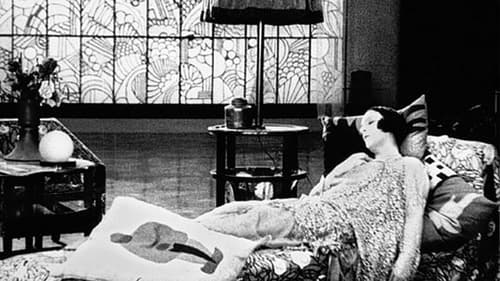
Writer
Jacques Prémont-Solène is a degenerate gambler and his losses at baccarat have bankrupted his lover, Laure Maresco. When he steals four hundred thousand francs and loses that at the gambling tables, he flees to the United States, and Nathalie takes the blame. Twenty years later, she has a flourishing career as a nightclub singer, but their son is just as inept a gambler as his father had been.

Director
Jacques Prémont-Solène is a degenerate gambler and his losses at baccarat have bankrupted his lover, Laure Maresco. When he steals four hundred thousand francs and loses that at the gambling tables, he flees to the United States, and Nathalie takes the blame. Twenty years later, she has a flourishing career as a nightclub singer, but their son is just as inept a gambler as his father had been.

Executive Producer

Director
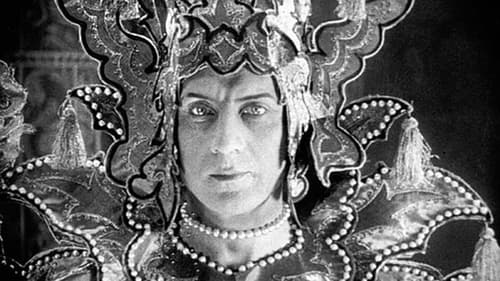
Editor
In the kingdom of the Moguls, Prince Roudghito-Sing, a young officer of the palace, falls in love with Zemgali, a captive princess held prisoner and coveted by the Grand Khan. Fleeing the country, he takes refuge in Paris and his presentability allows him to be hired as an actor by a French film company. The trouble is that Anna, the star of the movie, is attracted to him. Which displeases banker Morel, the producer and Anna's lover... Written by Guy Bellinger

Writer
In the kingdom of the Moguls, Prince Roudghito-Sing, a young officer of the palace, falls in love with Zemgali, a captive princess held prisoner and coveted by the Grand Khan. Fleeing the country, he takes refuge in Paris and his presentability allows him to be hired as an actor by a French film company. The trouble is that Anna, the star of the movie, is attracted to him. Which displeases banker Morel, the producer and Anna's lover... Written by Guy Bellinger

Director
In the kingdom of the Moguls, Prince Roudghito-Sing, a young officer of the palace, falls in love with Zemgali, a captive princess held prisoner and coveted by the Grand Khan. Fleeing the country, he takes refuge in Paris and his presentability allows him to be hired as an actor by a French film company. The trouble is that Anna, the star of the movie, is attracted to him. Which displeases banker Morel, the producer and Anna's lover... Written by Guy Bellinger

Director

Screenplay
A young man falls in love with the daughter of the man who adopted him.

Director
A young man falls in love with the daughter of the man who adopted him.

Writer
A mother sells a photo of her daughter to the press for publicity, and a daughter suddenly dies leaving the mother desperate surrounding by portraits of her daughter all around town.

Director
A mother sells a photo of her daughter to the press for publicity, and a daughter suddenly dies leaving the mother desperate surrounding by portraits of her daughter all around town.
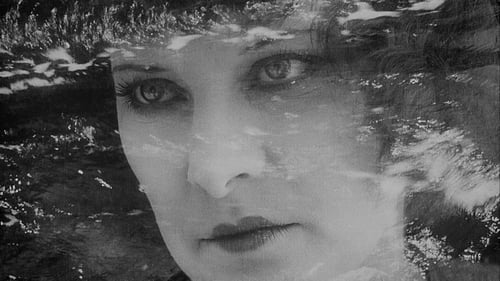
Writer
Marie, una joven huérfana, trabaja en un bar de un puerto de Marsella, explotada por el despótico individuo que la ha adoptado. Deseosa de escapar de él y de su amante, un alcohólico sin escrúpulos, acaba uniéndose a otro hombre,Jean, al que ve a escondidas. Jean le ofrece protección y le propone que se fuguen juntos y contraigan matrimonio.

Director
Marie, una joven huérfana, trabaja en un bar de un puerto de Marsella, explotada por el despótico individuo que la ha adoptado. Deseosa de escapar de él y de su amante, un alcohólico sin escrúpulos, acaba uniéndose a otro hombre,Jean, al que ve a escondidas. Jean le ofrece protección y le propone que se fuguen juntos y contraigan matrimonio.

Director
On June 22, 1923, and just five days after the start of a violent volcanic eruption on the north side of Etna, Epstein and cameraman Paul Guichard were crossing Italy to meet and film up close the monster that had provoked The filmmaker turned that meeting into this documentary in two parts and 24 minutes, commissioned and produced by Pathé-Consortium-Cinema.

Screenplay
Two young doctors, surprised by the storm, take refuge in an inn. A diamond broker joins them and, for lack of space, shares their room. At dawn he is found dead. A few years later justice is done.

Director
Two young doctors, surprised by the storm, take refuge in an inn. A diamond broker joins them and, for lack of space, shares their room. At dawn he is found dead. A few years later justice is done.

Director
Jean Benoît-Lévy & Jean Epstein's inventive documentary about the life of Louis Pasteur, a French chemist and one of the most important figures of medical microbiology, blends biographical drama with scientific recreations of his experiments, using Pasteur's actual instruments.















